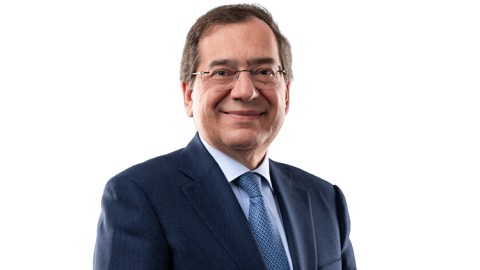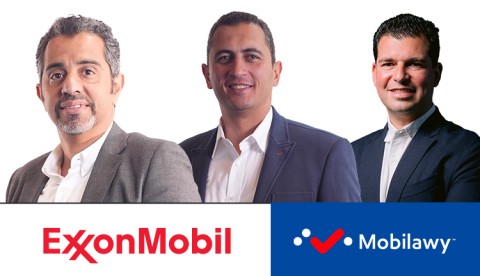BY JACK BECKFORD AND MAI EL GHANDOUR
How do you see the gold market in Egypt changing over the years?
You can go back to the pharaonic times, there is no doubt that gold has played a major part in the history of Egypt. You have this time from the pharaonic period to the Romans, and then you have the early Arab period. And this is where gold mining re-emerged again and activity accelerated a lot. Egyptians became known as miners, they worked in various places because of their expertise in mining. Going back to the pharaohs, gold is in the Egyptian DNA. But Egypt is rich in copper, zinc, lead, and lots of other things that nobody had even looked for. If you had a copper mine, everyone would be happy! It does not really matter whether you are looking for precious metals, base metals, or industrial minerals. There is something for everybody here. So the goal is to attract people to come look for all this and spend the money in the country.
After the early Arabs, for some reason mining disappeared, and it was not just gold, they also had mined copper, zinc and gem stones. Egypt actually has a huge amount of peridot, but it also has historically produced emeralds and rubies. What happened was it sort of fell off and then the British arrived and established a geological survey and in the late 19 century began mining. In our concessions, we have three old British mines; two of which are gold dating to the early 1900s. A lot of Egyptians will tell you there is gold everywhere, the thing is in those days, we did not have the technology we have today. Now the ability to process it is much more sophisticated, though the basis of mining remains and that is moving dirt cheaply and one of the things about Egypt is a lot of it is at surface, you do not have to dig down.
The modern era really begins in the 1980s and the key to understanding where we are today is in the 1970s when Governments in developing countries, did not think that they were getting their fair share of profits from oil & gas based upon royalties. So, there was a move to something that was seen as fairer, the production sharing agreement (PSA). But in 1982 the Egyptian Government decided to apply the PSA to mining, which was never going to work. The problem with the PSA is that the economics between oil & gas and mining are mutually exclusive. Thus, that is what pushed away mining investments in this country. It is not that Egypt does not have mineral potentials; it does. But it simply was very oil-centric; if it worked for oil and gas, it had to work for mining; which is like saying if it works for British Airways, it works for Uber because they both transport people.
How does the PSA affect Aton Mining?
Well, it does not affect us as we are under the old law. Our concession agreement was agreed to in 2007 so we are under the old concession. But if we tried, we could probably migrate to the new law through negotiation. This said, despite being part of the old legislation we will still bid in the upcoming bid round.
Where do you think Africa’s next gold mine will be?
It is very hard to say but there are a lot of projects on the go. In actual fact, it has been a very tough ten years for the mining and mineral exploration industry. Exploration companies like us, even though we are listed on the Toronto Stock Exchange, we live a hand to mouth experience. Your success depends on how much positive work you do and then you have to raise money for exploration. Thirty years ago, oil and gas and mining were where you used to put your risk money, however, there is a much broader investment market these days. We are effectively the venture capital of the mining industry, the people who take the initial high risk with the hope of finding something we can commercialize. Either we will bring in a farm-in partner and they will have a stake and bring it to fruition or we will sell the project to somebody and go off and do more exploration or sell the company to a bigger mining company. As I say, it is like venture capital. This said, I believe in what Egypt has to offer and the opportunity here is huge, and not just for us, but for the country in general. It will not be a straight line, it will not happen overnight, but it will get there.
The Bedouins around Rodruin have always talked about a lost mountain of gold. Why do you think Rodruin fits that description?
Fast-forward to 2018, we have just made what we considered to be our largest discovery; which is Rodruin. Rodruin was an interesting one because it combined archeology with geology. We had a large processing area and the tailings were running at seven grams a ton, and that is quite good. You cannot see the gold, but it is in there. With a satellite imagery and Google Earth, we worked out that there were manmade trails that went up to this mountain 3 km away. We climbed up and it was very steep, and there it was; the oh my god moment. The place was honeycomb with ancient workings. It must have been hundreds of people working for thousands of years. There is so much there and nobody even knew about it; that is why it is called Rodruin. There was no Arabic name for it, but people always talked about that there was a lost mountain of gold, so the Bedouins knew about it but they did not know where it was. And I am sure there is more like that in the country.
Do you think Egypt is under explored?
Without doubt it is. There should be a more holistic approach to mining. The reason that gold is $1700/Oz is because it is rare and it is difficult to find. I think you have to look at the industry as a whole. There is an abundance of other minerals within Egypt such as, silver, lead, copper, zinc and possibly nickel, just to name a few. But there is also a lot that has not been explored, for example at Fayoum you will probably find Borax, which is an indicator for Lithium and subsequently battery production. This said, the Egyptian Mineral Resources Authority (EMRA) has to get rid of or certainly reduce the ground rent costs during the exploration phase, which are extortionate and will deter investment.
What about the potential of Shalateen?
Shalateen (situated near to the border line between Egypt and Sudan in the Halayib Triangle) has a high potential for gold. The interesting thing about Shalateen is the area Anbat (being explored by Thani Stratex) is that it is not polymetallic but purely gold.
Where do you see the industry 20 years from now?
I think that you will have one or more mines of different minerals other than gold. They may be small or medium but it all generates tax revenue and also creates localized jobs. What I would like to see is by that point, young Egyptian geologists and mining engineers have been trained up so that in addition to the international companies working here, we will have domestic companies competing here as well. It took years for this to happen in oil and gas, but now you have the International Egyptian Oil Company(IEOC) among others who are now producers and not just service companies and I can see this being replicated in the mining industry, no doubt. But also, I do not think you can underestimate the importance of the PSA amendments for the future of Egyptian mining.
What can be done to fast track the industry?
You can fast track it by making what data there is easily available and not by having any Government involvement and let companies get on and do their work. Mineral exploration is a much longer process than oil & gas and on average it takes from the beginning of exploration to having an operating mine, 10-15 years. It is also much higher risk and in Egypt, for every 100 gold explorations projects that begin, only 1 will become an actual real operating mine. One problem, is the amount of available data. The Russians did the best work back in the 70s but outside of that not much has been done since the 1930’s. At present no one in Egypt understands this business because it has not really existed for 100 years. The fact of the matter is that they need to digitize this information and they have to make it easily accessible but most importantly, they have to refrain from selling this information to foreign investors, as most countries give it away and this is to promote investment in the country. The key is to attract investors to come to Egypt like EGPC managed to do so in oil & gas.
What are the future plans of Aton Resources?
We have an area called Hamama, which is an area we have looked at a lot. It depends whether we can migrate to the new law. As a sense, right now we are looking to build a small heap leach, a very simple and cheap way to extract gold from a certain type of rock. In addition to this, we believe our primary exploration targets at Rodruin and Abu Ghaharish have the potential to become much larger mines and so we will continue to aggressively explore them as well as the 17 additional exploration targets that we have.








